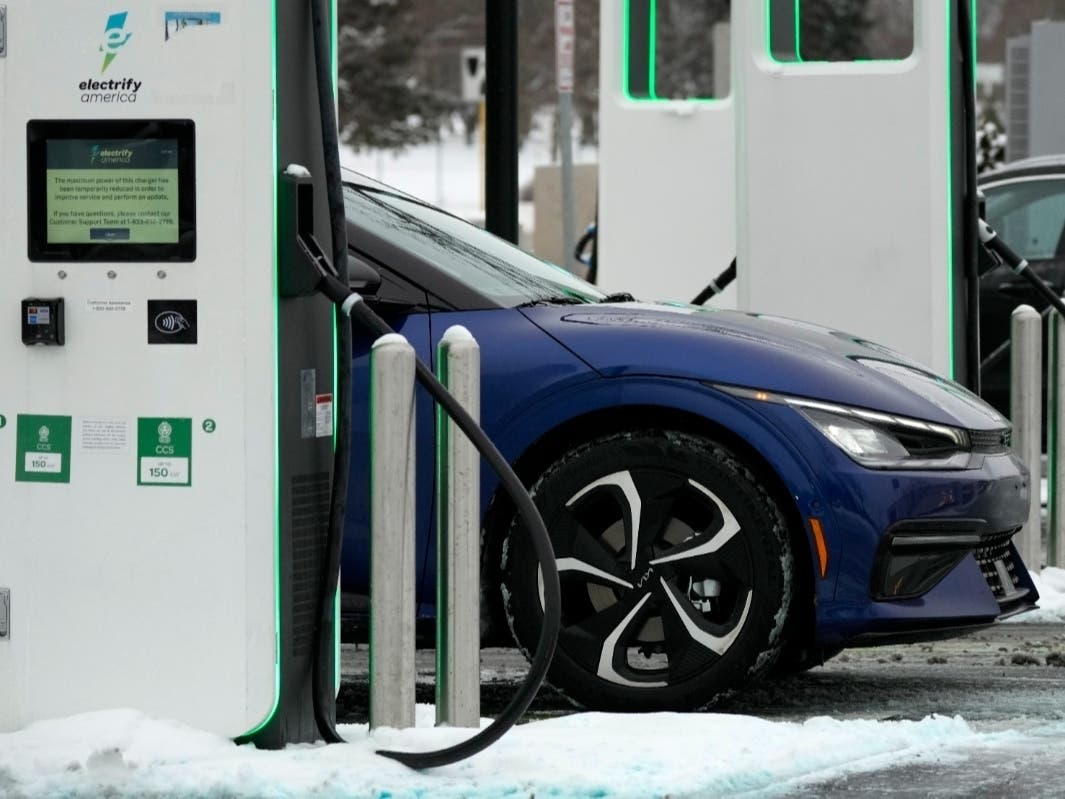Car Dealerships Step Up Pressure Against EV Mandate

Table of Contents
Financial Concerns Driving Dealer Opposition to EV Mandates
The core of the car dealerships' opposition to EV mandates lies in significant financial concerns. The transition to a predominantly electric vehicle market requires substantial investments and presents considerable uncertainties, particularly for smaller dealerships.
High Initial Investment Costs for EV Infrastructure
Dealerships face substantial upfront investment costs to adapt to the EV market. This includes:
- High cost of charging stations: Installing and maintaining sufficient charging stations capable of handling various EV models and charging speeds is expensive.
- Need for EV-specific training programs: Sales staff and mechanics require specialized training to handle EV-specific technologies, maintenance, and repairs, which necessitates significant investment in training programs.
- Potential for unsold EV inventory: Uncertainty surrounding consumer demand creates a risk of being stuck with unsold electric vehicles, tying up valuable capital.
Lack of sufficient government support for infrastructure development further exacerbates these financial burdens, making the transition even more challenging for many dealerships.
Uncertainty Surrounding EV Market Demand and Profitability
The long-term profitability of EV sales remains a significant concern for dealerships.
- Fluctuating EV prices: Price volatility in the EV market, influenced by battery costs and government incentives, makes long-term financial planning difficult.
- Consumer hesitation to adopt EVs: Consumer adoption rates of EVs vary significantly based on factors such as range anxiety, charging infrastructure availability, and purchase price.
- Reliance on government incentives: The profitability of EV sales often depends heavily on government subsidies and tax credits, creating uncertainty and vulnerability to changes in government policy.
Challenges in Adapting Sales and Service Models for EVs
Beyond the financial aspects, the transition to EVs presents significant operational challenges for car dealerships, requiring substantial adaptations to their existing sales and service models.
Training and Workforce Development
Adapting to the EV market requires a substantial shift in dealership workforce skills.
- Need for specialized EV mechanic training: Repairing and maintaining EVs requires specialized knowledge and skills that differ significantly from working on internal combustion engine (ICE) vehicles. Finding and retaining qualified EV technicians is a growing challenge.
- Retraining existing staff: Dealerships need to invest in retraining their existing sales and service staff to handle the unique aspects of EV technology and customer needs.
- Difficulty finding EV technicians: A shortage of qualified EV technicians further exacerbates the challenge of providing timely and effective service.
Changes in the Sales Process and Customer Experience
Selling EVs differs from selling traditional vehicles, demanding significant adjustments to dealership operations.
- Adaptations to marketing and sales strategies: Dealerships need to adapt their marketing and sales strategies to effectively communicate the benefits of EVs to potential customers and address their concerns.
- Educating customers on EV technology: Dealerships play a crucial role in educating customers about EV technology, charging infrastructure, and the overall ownership experience.
- Handling customer concerns about range anxiety: Addressing customer concerns about range anxiety and charging infrastructure is vital to building trust and encouraging EV adoption.
Lobbying Efforts and Political Pressure Against EV Mandates
Faced with these challenges, car dealerships are actively engaging in lobbying efforts to influence government policies related to EV mandates.
Industry Associations and Political Advocacy
Car dealer associations are playing a leading role in opposing or delaying the implementation of aggressive EV mandates.
- Lobbying efforts by dealer associations: These associations are actively lobbying government officials to reconsider the timelines and targets associated with EV mandates.
- Engaging in political advocacy: They use various political advocacy strategies to highlight the challenges faced by dealerships and advocate for more gradual and supportive policies.
- Calls for phased EV adoption: Instead of immediate and drastic mandates, they argue for a phased approach to electric vehicle adoption, allowing the industry to adapt more gradually.
Alternative Fuel Solutions and Technological Debates
The debate surrounding EV mandates extends beyond the economic concerns of dealerships.
- Promotion of alternative fuels: Dealerships and industry groups are advocating for consideration of alternative fuel sources, such as hydrogen or biofuels, as a viable pathway towards sustainable transportation.
- Concerns about grid infrastructure: The readiness of the electric grid infrastructure to support widespread EV adoption is questioned, raising concerns about potential grid instability.
- Environmental impact of EV battery production: The environmental impact of EV battery production and disposal is another area of debate, highlighting the need for sustainable battery production and recycling solutions.
Conclusion
The opposition of car dealerships to EV mandates presents a significant hurdle to the transition to electric vehicles. Financial pressures, operational challenges, and ongoing political lobbying reveal the complexities of this shift. While the push for sustainable transportation is crucial, a balanced approach that acknowledges the practical concerns of dealerships is vital for a successful and equitable transition. Finding collaborative solutions addressing both environmental sustainability and the economic realities of the automotive industry is paramount. Understanding the multifaceted pressures against the EV mandate is key to creating a future that combines environmental responsibility with economic viability. A constructive dialogue involving all stakeholders is needed to navigate this critical juncture and ensure a smooth transition to a more sustainable transportation sector.

Featured Posts
-
 Jejak Porsche 356 Dari Zuffenhausen Ke Legenda Otomotif Jerman
May 25, 2025
Jejak Porsche 356 Dari Zuffenhausen Ke Legenda Otomotif Jerman
May 25, 2025 -
 Under 1 Million Dream Homes Found In Escape To The Country
May 25, 2025
Under 1 Million Dream Homes Found In Escape To The Country
May 25, 2025 -
 Mathieu Avanzi Depasser Les Cliches Sur La Langue Francaise
May 25, 2025
Mathieu Avanzi Depasser Les Cliches Sur La Langue Francaise
May 25, 2025 -
 Trumps Eu Threats Send Gold Prices Climbing
May 25, 2025
Trumps Eu Threats Send Gold Prices Climbing
May 25, 2025 -
 Pariss Economic Slowdown Luxury Sector Downturn Impacts City Finances March 7 2025
May 25, 2025
Pariss Economic Slowdown Luxury Sector Downturn Impacts City Finances March 7 2025
May 25, 2025
